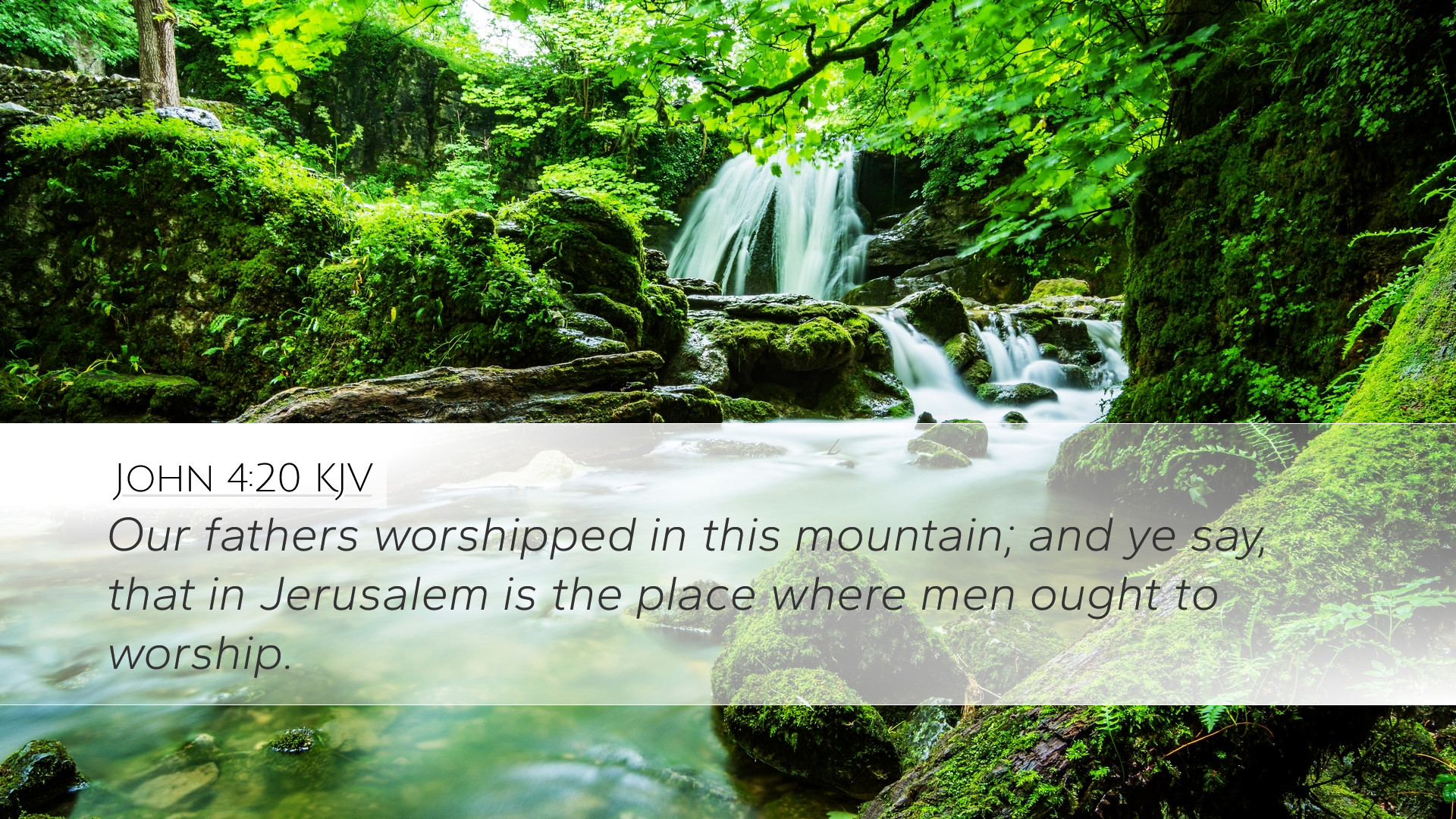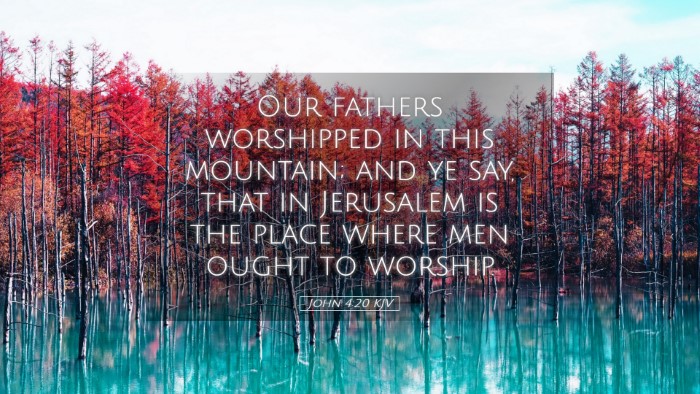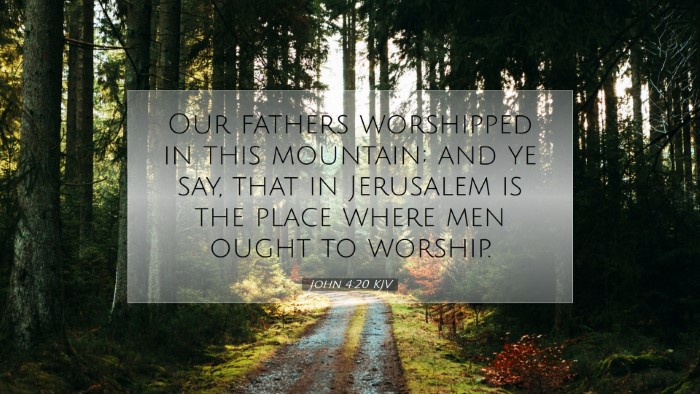Commentary on John 4:20
Text: "Our fathers worshipped in this mountain; and ye say, that in Jerusalem is the place where men ought to worship."
In this verse, the Samaritan woman highlights a crucial religious debate of her time. Her statement reveals a deep-seated historical and theological contention between the Samaritans and the Jews regarding the true place of worship.
Historical Context
The Samaritans, descendants of the northern tribes of Israel, built their temple on Mount Gerizim, which they asserted was the divinely ordained location for worship. In contrast, the Jewish people upheld Jerusalem as the appointed site for true worship, as established by God's covenant and subsequent directives laid out in the Law of Moses.
Theological Implications
This verse serves as a launching point for deeper theological discussions regarding worship. The mention of "our fathers" signifies a collective memory and tradition that the Samaritan woman is claiming—emphasizing the legacy of worship as crucial to her identity and faith.
Insights from Matthew Henry
Matthew Henry, in his commentary, emphasizes the woman's understanding of tradition and lineage in worship. He notes that the mention of "our fathers" indicates an inherited belief system that she feels deeply connected to. However, he points out that her understanding is limited, encumbered by the struggles and conflicts surrounding her people's history with the Jews.
Insights from Albert Barnes
Albert Barnes provides a further examination into the geographic and cultural tension between the Samaritans and Jews. He highlights that the woman’s reference to "this mountain"—Mount Gerizim—reflects the lingering tension and conflicting claims to divine revelation between the two groups. Barnes posits that this dialogue serves as a pivotal moment in Jesus' ministry, where He challenges existing norms and expectations around worship.
Insights from Adam Clarke
Adam Clarke interprets this verse by stressing the significance of location in worship practices. He indicates that the Samaritan woman’s approach depicts a misunderstanding of spiritual worship. Clarke argues that she is desperately attempting to uphold her cultural identity, yet fails to see that true worship transcends a specific location.
Philosophy of Worship
The dialogue in this passage prompts an essential examination of what constitutes worship in the eyes of God. The woman’s insistence on tradition invites reflection on contemporary practices of faith. Are believers today, like the Samaritan woman, too often anchored by geographical or cultural biases in their understanding of worship?
Spiritual Revelation
This verse prepares the ground for Jesus' profound revelations about worship. It is pivotal to see how Christ responds to the woman’s question. His teachings will lead to the declaration that true worship—spirit and truth (John 4:24)—cannot be confined to specific places, instead issuing a call that transcends historical, cultural, and geographical limitations.
Applications for Today
For modern practitioners of faith, John 4:20 offers several insights:
- Unity in Diversity: The verse signifies the importance of understanding and respecting diverse worship practices while fostering unity among believers.
- Moving Beyond Tradition: It calls individuals to seek a deeper relationship with God that moves beyond mere tradition or physical locations to a heart-centered worship.
- Engagement with Scripture: Encouragement to engage with the Scripture thoughtfully and with an openness to the transformative understanding of God’s nature and His desire for sincere worship.
Conclusion
In conclusion, John 4:20 invites a profound exploration into the nature of worship, identity, and the relationship with God. Insights from revered commentators such as Matthew Henry, Albert Barnes, and Adam Clarke provide a multi-dimensional perspective that enriches understanding of this text. Ultimately, the call to worship in “spirit and truth” emphasizes that God desires more than ritual; He seeks authentic communion with His creation.


